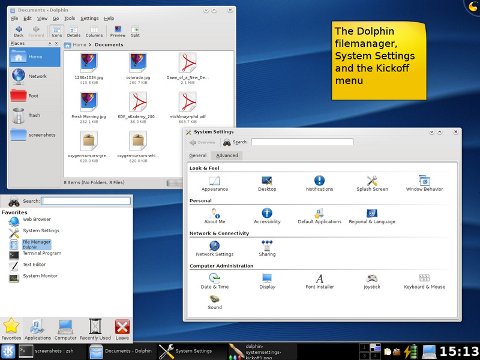
Summary: A quick analysis of the concerns expressed about KDE SC-associated projects and what should be done about it
Siemens and its partner Microsoft have created
the unprecedented and troubling situation in Germany. "German Court Declares Software Patents Legal," says
this new headline from eWEEK Europe.
A German court has found in favour of Siemens, in a case that critics say will allow patentability of any kind of software in that country, contrary to the stated policy of the European Union.
The ruling allows Siemens a patent for a “client-server software for the automatic generation of structured documents (such as XML or HTML)” according to analysis by open source campaigner Florian Mueller on the FOSS Patents blog. The full court statement has been published by End Software Patent
This can have an effect on GNU/Linux [
1,
2] because of codecs for example.
We happen to have
mentioned Hugin yesterday, right after someone associated with KDE (and FSFE, both of which are primarily/mostly based in Germany) expressed concerns about software patents. What does the FSFE have to say about the ruling in Germany? There will hopefully be a formal statement soon. How about the FFII?
Someone has just written
this post about (software) patents and Amarok, one of the better-known KDE SC applications. It has the codec issue (MP3 support for starters).
Ade makes some interesting points about the GPL, particularly the opportunity to exclude certain jurisdictions where the use of the software would infringe a patent. He also raises the question of whether distribution of source code – as opposed to binaries – can be counted as infringement and reflects on the trend to explicitly claim for a medium containing code that would cause the invention to be ‘realised’ on a computer.
As we noted a few years ago, Apple's software patents are already harming KDE and KDE developers did complain about it (the Plasma team for example).
European patent lawyers are seemingly lusting for more business in the form of software patents. They keep
raving about the USPTO, which makes it easier to obtain a patent on merely everything. From the London-based lawyers:
The USPTO offers an interesting deal to applicants with more than one application: give one application up in exchange for expedited examination of another application. This program has been available for a while, but the USPTO announced on 17 May that it will now be open to all applicants:
Under the expanded Project Exchange, which will take effect with the publication of the Federal Register notice in the coming weeks, any applicant with more than one application, filed prior to the inception of the program, currently pending at the USPTO can receive expedited review of one application in exchange for withdrawing an unexamined application. The expanded Project Exchange will give all applicants with multiple filings greater control over the priority in which their applications are examined and enable priority applications to be examined on an expedited basis. By providing incentives for applicants to withdraw unexamined applications that may no longer be important to them, Project Exchange is expected to appreciably reduce the backlog of unexamined patent applications pending before the USPTO.
The expanded Project Exchange will be limited to 15 applications per entity through December 31, 2010.
The goal is to filter applications, not approve them. They use the wrong yardstick to increase their own profit.
There are even some events on "Patents and Free and Open Source Software" [
1,
2]. There is not much to discuss really. Free software is incompatible with patents and therefore software patents are a threat to people's digital freedom. To legalise software patents is to enslave computer users. Now more than ever we need Free software and we need to abolish software patents.
⬆
“Dear [EU] Commissioner: Along with many other computer scientists, I would like to ask you to reconsider the current policy of giving patents for computational processes.
“There are far better ways to protect the intellectual property rights of software developers than to take away their right to use fundamental building blocks.
“I find a considerable anxiety throughout the community of practicing computer scientists that decisions by the patent courts and the Patent and Trademark Office are making life much more difficult for programmers. ”
--Donald Knuth
